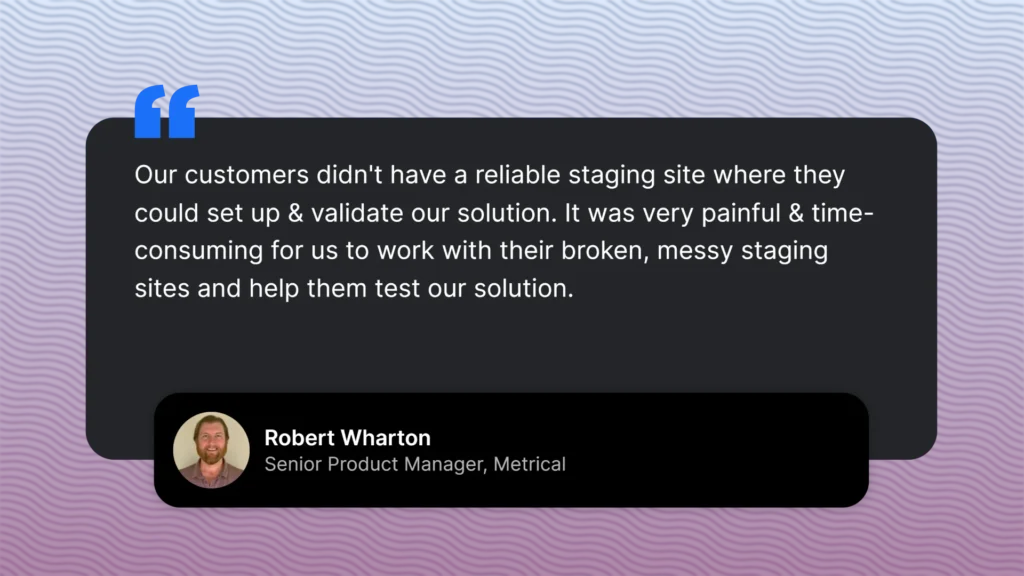Metrical uses Requestly to demonstrate their tool directly on customer websites

Metrical helps eCommerce companies improve the conversation rate by reducing cart abandonment. Metrical provides a predictive AI-based SaaS solution that companies integrate into their websites and then Metrical identifies the high Intent users and optimizes their user journey by showing targeted offers before they leave the site. This helps e-commerce companies reduce cart abandonment and increase revenue.
In simple words, Metrical observes the behavior pattern of millions of visitors on e-commerce sites & changes the actual content on the page to match current user behavior to provide a more curated experience.
Metrical is an AI company focused around building deeper models to understand the interactivity of customers on a website, to identify their behavior and to deliver a curated experience to increase their retention.
This testimonial has been given by Robert Wharton, senior product manager at Metrical. Here’s a brief session where Robert explains the problem & how Requestly helps.
The Challenge
In an ideal world, every company would have a staging environment as close to the production environment but unfortunately that isn’t the case. Even most big companies don’t have a reliable staging set up and that’s what became the most challenging for Metrical when they started working with their customers.
Most of their customers didn’t even have a staging site. Even for those who had, it was quite unreliable and had lots of unfinished dev features being tested. It became very painful & time-consuming to work with their customers to help them set up metrical scripts on their site and test the solution end to end.
Having a dedicated or stable staging environment from their customers didn’t seem a fair ask.

The Solution
A customer’s engineer suggested Metrical use Requestly to swap production script with staging script on their website for quick integration & testing purposes. This simple solution removed the dependency of having a reliable staging website from their customers.
Now, Metrical team uses Redirect Rule to load Staging version of their code instead of production version directly on customer sites and test the product along with their customers. This helps them in faster testing and making sure each new component is doing its job with everything else going on around it on the user’s website.
Metrical team has customer specific staging libraries and So they use separate rules for individual customers. They enable/disable the rule when working on that customer specific site.
Their team uses SharedList feature to share the rules that work to easily collaborate within the team as well as with their clients.
Their team also uses Requestly internally to load & test new assets on production environments without deployment cycles. With this, Metrical gets the chance to test new changes before releasing them on a live website, avoiding any bugs or errors from hurting the user experience.
Contents
Subscribe for latest updates
Share this article
Related posts



 Requestly is now SOC 2 Compliant! Ensuring top-notch security and privacy for your data.
Requestly is now SOC 2 Compliant! Ensuring top-notch security and privacy for your data.















